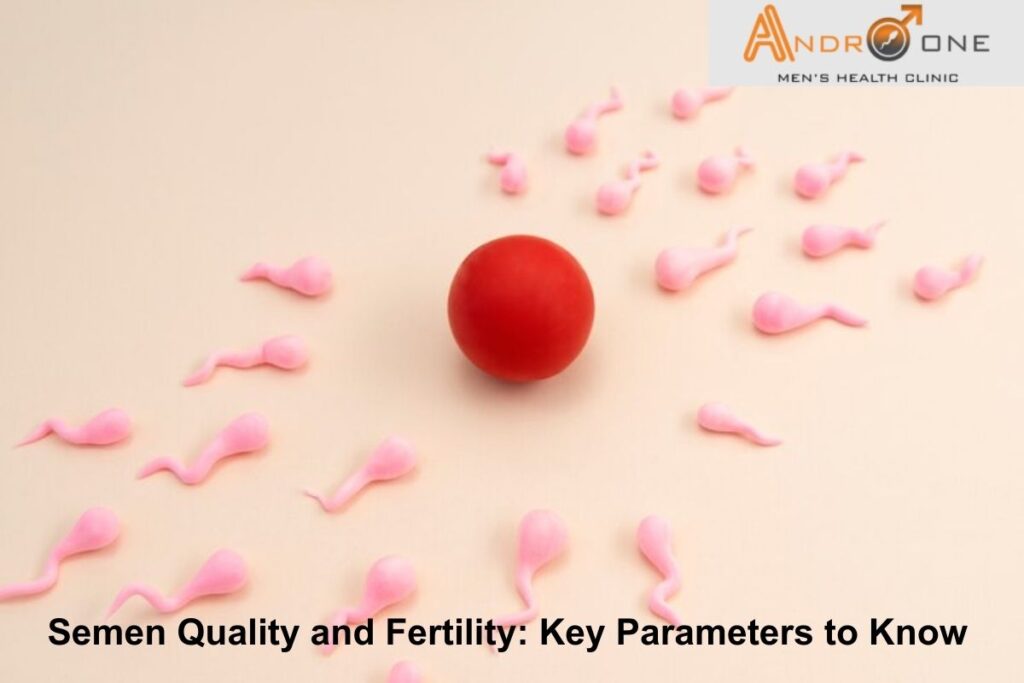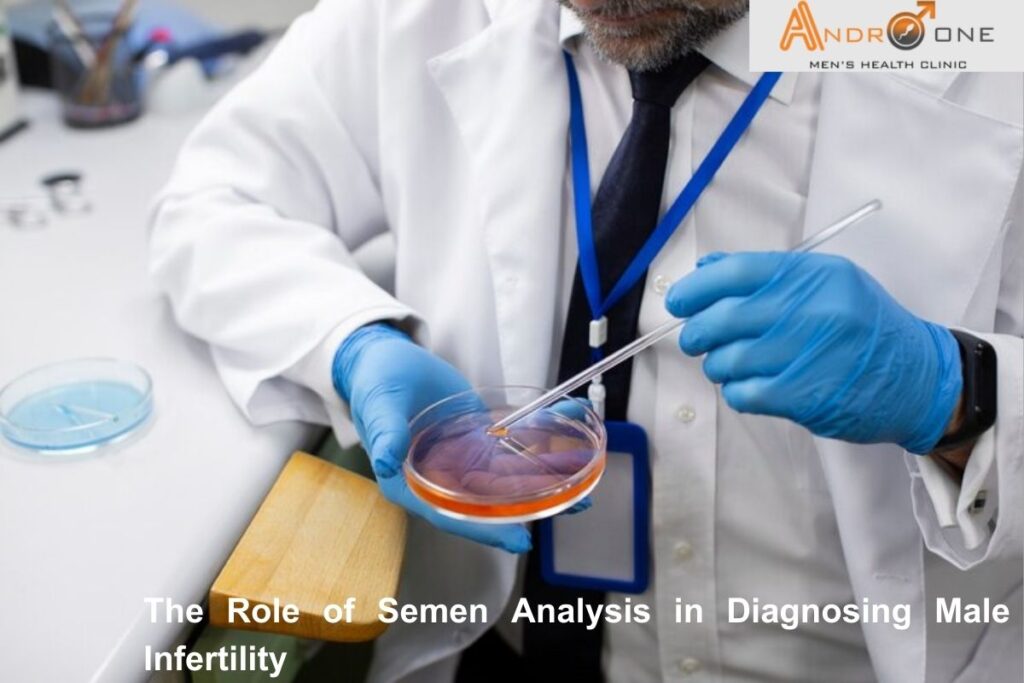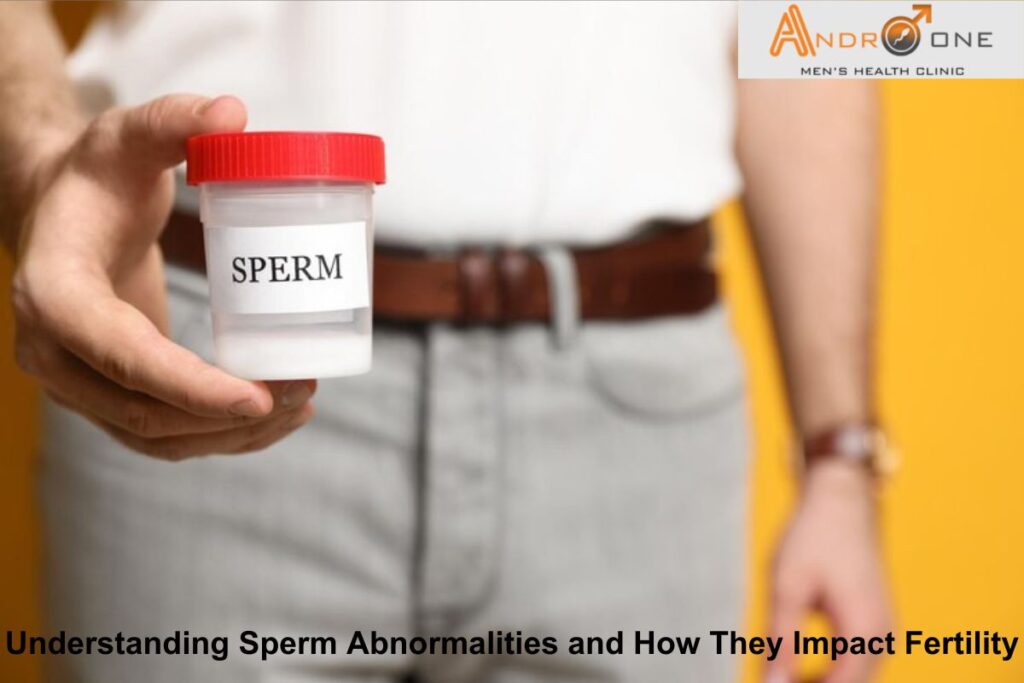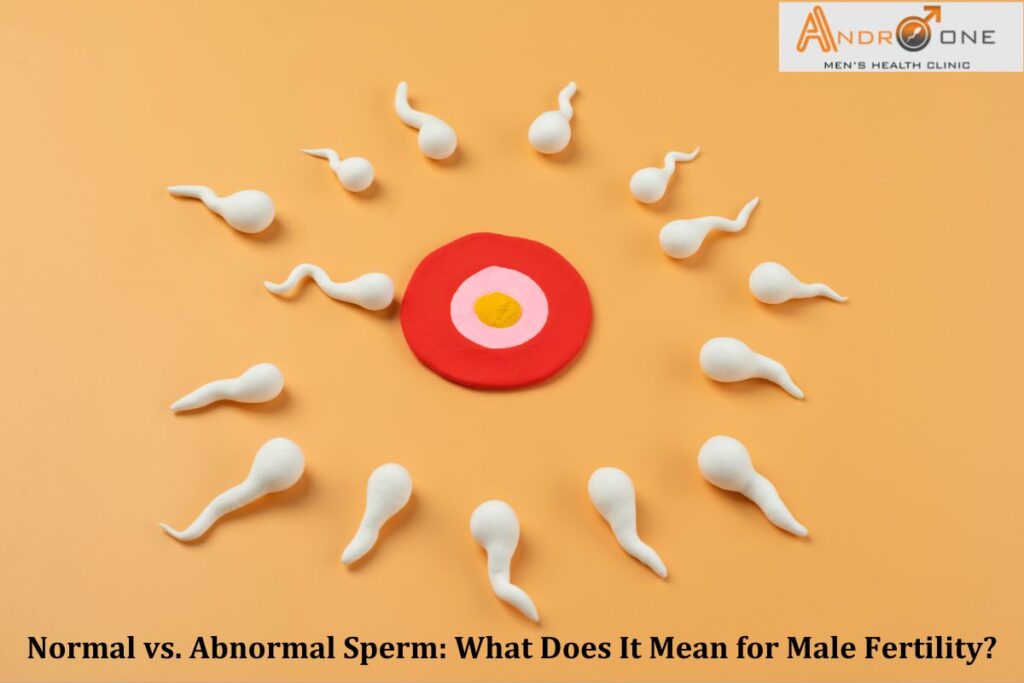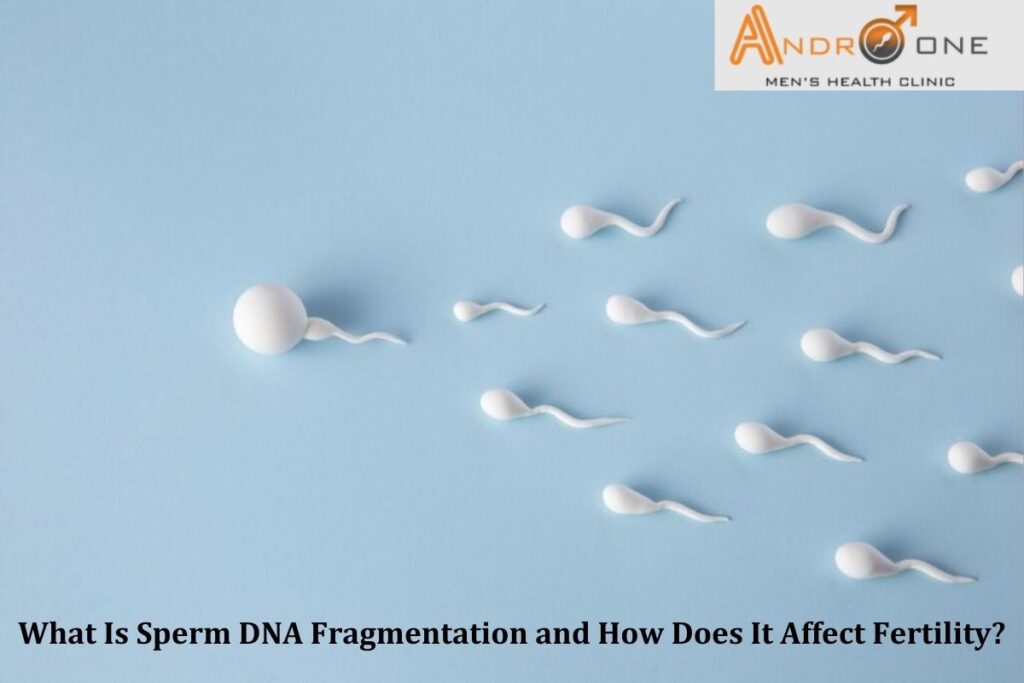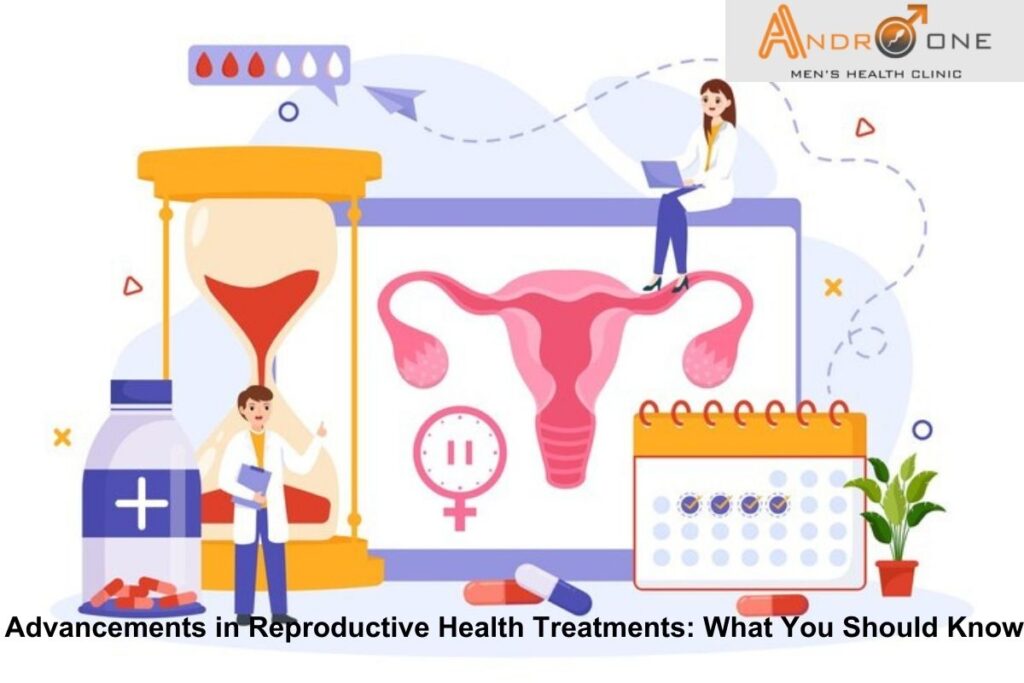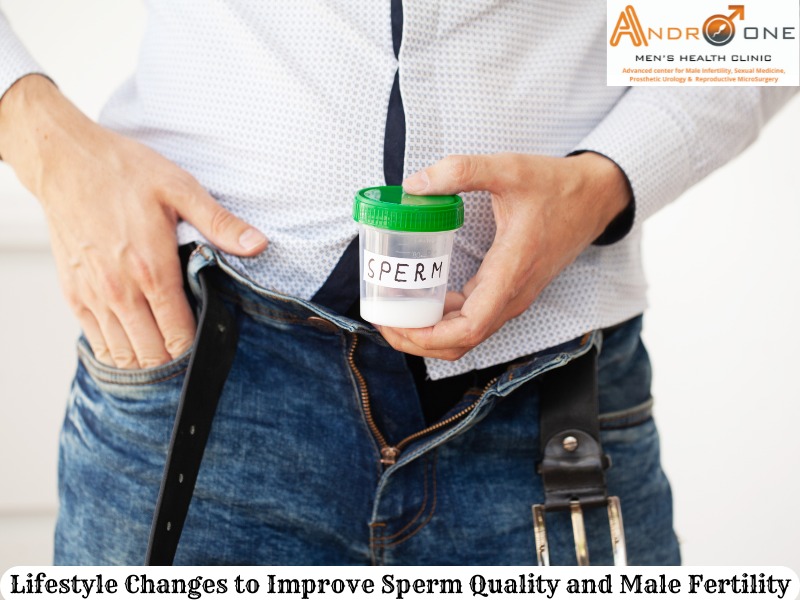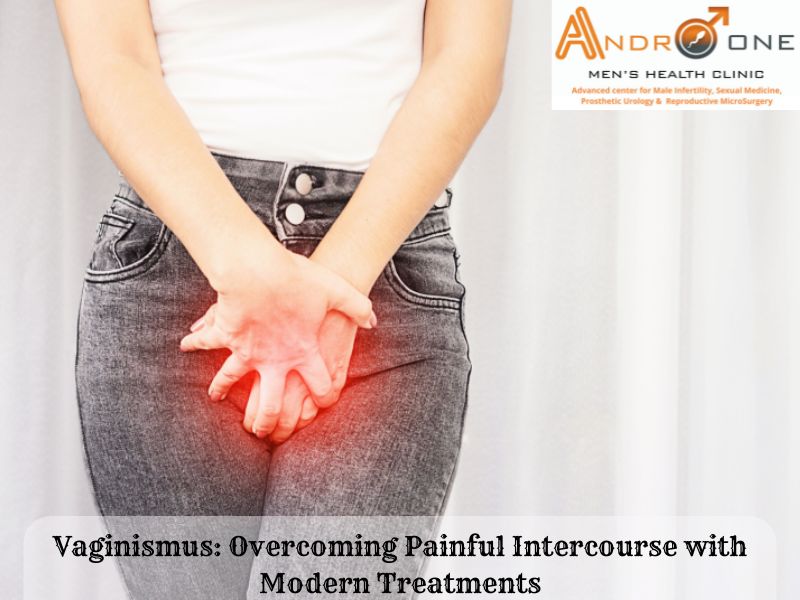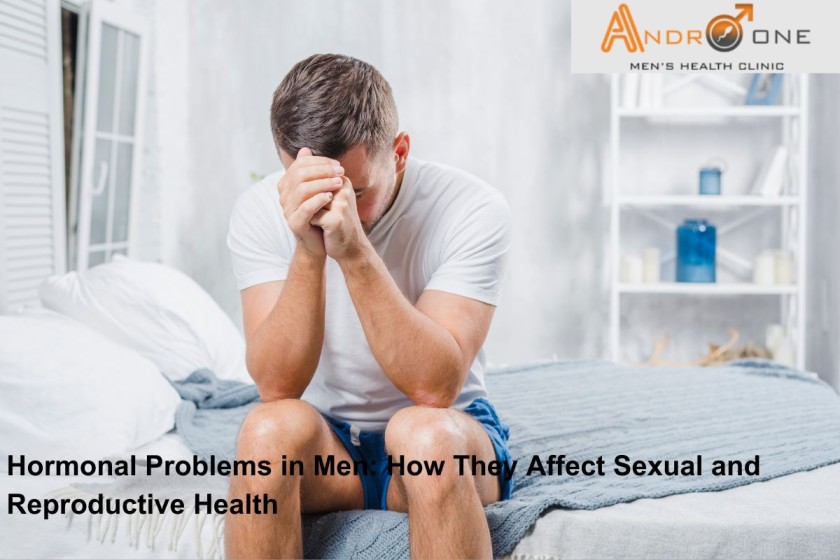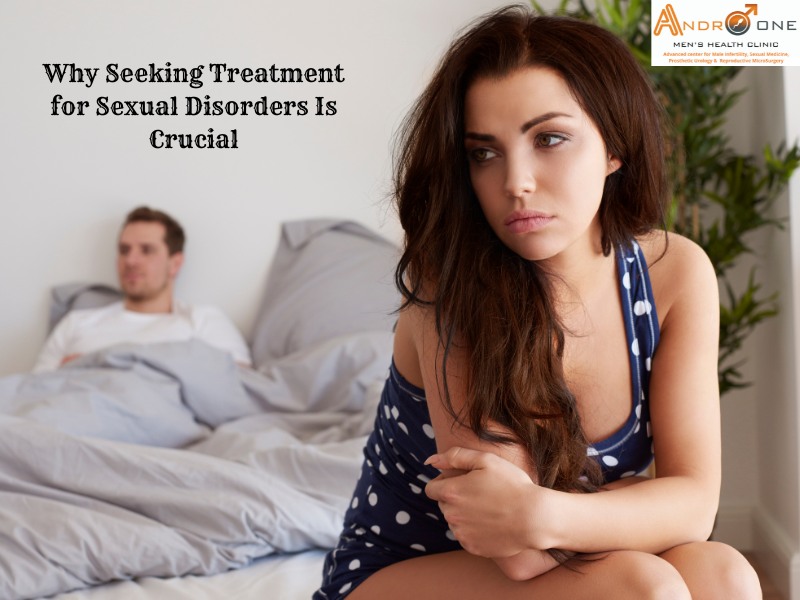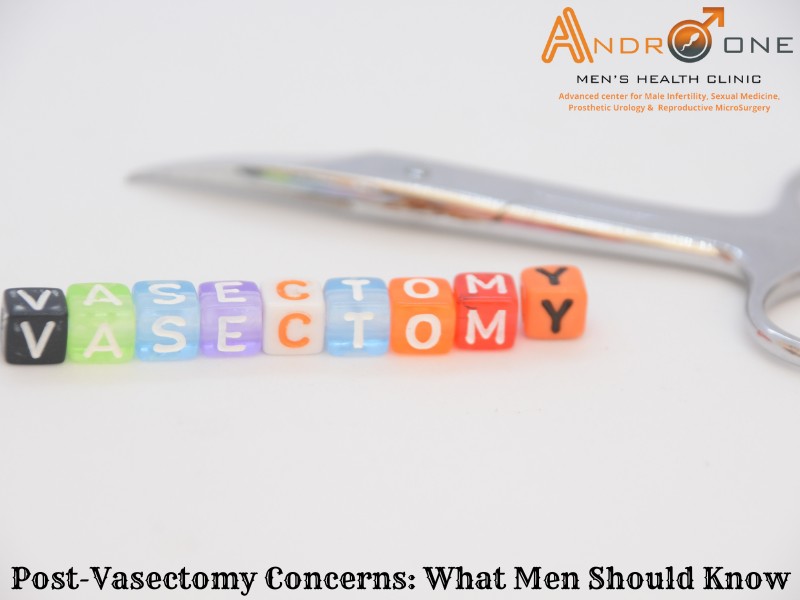Semen Quality and Fertility: Key Parameters to Know
Understanding semen quality is imperative for males who are experiencing infertility issues. Semen quality directly impacts the probability of conceiving. Understanding key parameters of semen quality may be the necessary intervention you need towards addressing fertility problems if you are unable to conceive. What is Semen Quality? Semen quality refers to the health and number of sperm cells in a semen sample. Parameters like sperm count, motility, and morphology are essential determinants of the fertility potential of a man. The improvement of these factors would enhance the possibilities of conception. Key Parameters of Semen Quality Sperm Count This measures the number of sperm in a sample of semen. A normal sperm count must have at least 15 million sperm per millilitre. Low sperm count decreases the chances of fertilizing an egg. Sperm Motility Sperm motility refers to the efficiency of sperm in swimming. Healthy sperm must swim in a straight line toward the egg. Motility is essential for fertilization to be successful. Usually, 40% of the sperm should have good motility. Sperm Morphology Sperm morphology refers to the shape and size of sperm. Normal sperm should have an oval head and a long, straight tail. Poor morphology can lower fertility because abnormal sperm may not be able to fertilize an egg. Seminal Volume Seminal volume refers to the quantity of seminal fluid in one sample. Ideal seminal volume lies within the limits of 1.5 millilitres up to 5 millilitres. Low-volume semen may have several causes for reproductive system defects and prostate malfunctioning. pH Levels The pH level in semen should slightly be alkaline. The average pH range that is normal falls between 7.2 and 8.0. In case the pH is not right, then that may point to infection or other problems regarding fertility. White Blood Cells White blood cells in the semen could be a sign of infection or inflammation. Increased white blood cells affect sperm quality. The examination of white blood cells is an essential component of semen analysis. Why Is Semen Quality Important for Fertility? The semen quality is a direct determinant of fertility. The man who has healthy semen will conceive with his partner more readily. However, many factors influence sperm health. These include lifestyle, diet, and the overall health of a person. Additionally, age may be a determining factor for semen quality. So, sperm health improvement is the first step to enhancing fertility. Factors Affecting Semen Quality There are several influences on semen quality. A sedentary lifestyle, poor diet, smoking, and excessive alcohol can reduce the quantity of sperm. Stress, obesity, and exposure to toxins also reduce the semen quality. Moreover, environmental factors include heat and chemicals that damage sperm. The use of tight clothing, hot baths, pesticides, and heavy metals should be avoided for sperm health. How to Improve Semen Quality? Healthy Diet A balanced diet supplemented with fruits, vegetables, and antioxidants improves sperm quality. Among the vitamins and minerals, Vitamins C, D, E, and zinc are important components of healthy sperm. Regular exercise Moderate exercise can increase sperm count and motility. Conversely, excessive exercise can have an adverse effect. Maintaining a healthy weight also helps in fertility. Quit Smoking and Limit Alcohol Smoking and excessive drinking can decrease the sperm count and motility. Quitting them can improve the semen quality gradually. Reduce Stress Chronic stress affects sperm production and overall health. Relaxation techniques such as meditation, yoga, and sleep help reduce stress. Consult a Specialist If you are bothered about semen quality or fertility problems, it is always time to consult a specialist. The Best Andrologist in Namakkal or the Best Sexologist in Salem can help navigate you through tests and treatments for infertility. When to Seek Expert Help? The first step is to seek professional help if you are unable to conceive. Experts in Andrology and Men’s Health in Tamilnadu are capable of identifying the underlying conditions that may be causing semen quality to deteriorate. However, visiting a Men’s Sexual Health Clinic in Tamilnadu can provide people with specific guidance and treatment options. Furthermore, specialized Sexual Health Information clinic in Tamilnadu offer great resources for increasing sexual health. Conclusion Finally, men suffering from fertility problems will require knowledge about semen quality parameters. Improving their chances for conception can be made possible with a focus on aspects such as sperm count, motility, and morphology. Moreover, a healthy lifestyle, along with professionals like the Best Andrologist in Namakkal or the Best Sexologist in Salem, will help one control their fertility journey. These are crucial steps for significant improvement in the overall reproductive health and success of fertility. Follow the advice of Experts in Andrology and Men’s Health in Tamilnadu, and you can make informed decisions that boost your chances of conception.
The Role of Semen Analysis in Diagnosing Male Infertility
Rising incidences of new infertility rates among men have brought up issues in the lives of many couples worldwide. For most couples trying to conceive, male infertility is one of the most challenging problems to deal with at that stage in their lives. Semen analysis is beneficial in determining male infertility. By this simple test, the sperm health condition is understood and can clarify other underlying issues that may affect fertility in a man. Learning how semen analysis works will inform men how to act toward treatment. What is Semen Analysis? Semen analysis is a laboratory investigation of the sperm quality from a man. It includes the assessment of factors such as sperm count, motility (movement), morphology (shape), and volume. It is done to check for all possible problems that can lead to poor conception success. A semen analysis can be used to infer about the man’s reproductive health as well. A complete semen analysis will typically involve: Sperm Count: The number of sperm in the semen sample. Motility: Movement capability of sperm for proper mobility. Morphology: The shape and size of sperm. Volume: The amount of semen produced. pH Level: The acidity or alkalinity of the semen. Why is Semen Analysis Important in Male Infertility Diagnosis? Semen analysis identifies the causes of male infertility. It shows what doctors are working with in determining the underlying issue. A semen analysis showing low sperm count, poor motility, or abnormal morphology can point toward male infertility. This test can also help exclude other conditions, such as infection or hormonal imbalance. Additionally, semen analysis can be considered the first step toward eventually identifying an effective treatment. If an abnormality is found, the physician may carry out additional tests to find the cause. Therefore, semen analysis is usually the first line of diagnosis for male infertility. Common Causes of Male Infertility Identified Through Semen Analysis Semen analysis can find various reasons infringing upon infertility. Some of the most common causes include: Low Sperm Count: Too few sperm in the semen make it very difficult to fertilize an egg. Poor Sperm Motility: If sperm doesn’t swim properly, it may not be able to reach the egg. Abnormal Sperm Morphology: Irregular sperm shape may hinder its ability to penetrate through the egg. Infections: Infections affecting the reproductive organs may lead to reduced sperm counts and motility. Varicocele: An abnormal dilatation of veins within the scrotum may affect sperm production. Finding the above problems through semen analysis allows doctors to recommend a proper course of action. How Semen Analysis Helps in Treatment Decisions? When semen analysis results are returned to the physicians, docdoes tors recommend Helpecessary treatment. In the case of low sperm counts, lifestyle changes or medication are usually prescribed, while problems with motility may require sperm retrieval techniques or assisted reproductive technology. However, semen analysis may also serve as a means by which doctors would monitor efficacy or effectiveness of treatments. Improvement in sperm quality gives an increased probability of successful conception following treatment. This test may offer an excellent feedback opportunity under which the doctor may modify the treatment plan. Help from Experts If you are having trouble conceiving, see an expert. The best andrologist in Salem or the best sexologist in Namakkal would be good at rendering professional assistance. This area includes experts dealing with male reproductive health diagnosis and treatment of infertility problems. Such individuals combine expertise with the latest technology in the field to solve fertility problems. A sexual Medicine Expert in Tamilnadu would benefit you too. They can offer treatments for most underlying conditions like erectile dysfunction, low testosterone, and other sexual health problems. Consulting with these professionals ensures personalized care for your most specific needs. Conclusion Semen analysis is one of the major tools for diagnosing male infertility. Thereby providing vital information into the possible causes of infertility. The assessment of sperm count, motility, along with morphology also serves as a guide in treatment. Therefore, when faced with a case of infertility, seeking the help of a qualified professional is the ideal method to proceed. Those experts in Andrology and Men’s Health in Tamilnadu can then give you the right support and treatment plans according to your needs. Remember, early diagnosis and intervention usually go a long way in improving a couple’s chances of becoming pregnant. So, don’t hesitate to get a semen analysis done if you’re experiencing fertility problems. That first step towards understanding your reproductive health could well be the answer you’re waiting for.
How a Vacuum Erection Device Works: A Step-by-Step Guide
A vacuum erection device, popularly known as VED, is one of the most used treatments for erectile dysfunction. The device helps in achieving and maintaining an erection using vacuum pressure. In this blog, we are going to outline how it works step by step, focusing on its effectiveness and safety. What Is a Vacuum Erection Device? A vacuum erection device is non-invasive; it is applied for the treatment of ED and comprises three essential parts: the cylindrical tube, the pump, and the constriction ring. However, the cylindrical tube is placed on the penis; then, there is the use of a pump that creates a vacuum. When the vacuum draws blood into the penis, one gets an erection. Step 1: Inserting the Penis into the Tube Start by carefully inserting your penis into the cylindrical tube. The tube is usually transparent, so you will be able to see the progression. This step is important because it allows you to ensure the device is placed correctly. Step 2: Creating the Vacuum Once the penis is inside the tube, it then creates a vacuum. To create a vacuum, you either use a manual or battery-operated pump. When the pump is working, it sucks air from the tube and creates a vacuum effect, drawing blood into the penis to erect it. Step 3: Placing the Constriction Ring Having attained an erection, the final step is the application of the constriction ring. The ring is placed at the base of the penis and aids in keeping the erection as it stops the blood from returning. The ring must be placed firmly but not too tight. Step 4: Enjoy the Outcome Once the vacuum erection device is in place, and the constriction ring applied, you are ready to engage in intercourse. The device typically maintains the erection for 30 minutes to an hour, depending on the response of the individual. Step 5: Removing the Device After intercourse, the constriction ring should first be removed then the device itself. It’s very important that the constriction ring is taken off immediately as it may cause discomfort or injury to the penis. Benefits of Using a Vacuum Erection Device A vacuum erection device is one of the best benefits for men who suffer from ED. It is non-invasive and does not require any medication or surgery. It also provides a sure solution for men who have not succeeded with other treatments. It allows men to get an erection in a very short time without any side effects. Therefore, it can be a life-changing device for men with erectile dysfunction. Safety Tips for Using a Vacuum Erection Device While using a vacuum erection device is usually safe, one must follow some safety precautions. First, never use the device for more than 30 minutes. Furthermore, this will cause discomfort or damage to the penis. The second precaution is that the constriction ring should not be too tight, which can cause less blood flow and pain. However, consult a doctor before you start using the device. It is also advisable that one ensures they consult a doctor before using the device especially if one is suffering from other conditions. A best andrologist in Salem will advise the best treatment in Tamil Nadu for men. When Should You Consider a Vacuum Erection Device? A vacuum erection device is most helpful for men with mild to moderate erectile dysfunction. It is also a good choice for men who cannot take oral medications for ED because of side effects or other medical conditions. However, if you have severe ED, you may need to consider other treatments, such as penile implants or injections. Where to Seek Help? In case you are unsure of whether the vacuum erection device would be an ideal treatment for you, seek medical advice from a healthcare provider. A best sexologist in Namakkal would be able to assess your case and recommend the most suitable treatments for the condition. Additionally, you could go to any of the clinics offering Sexual Health Information clinic in Tamilnadu where professional advice could be sought over sexual health matters. A licensed andrologist in Tamilnadu may determine whether this vacuum erection device is the solution you need to apply. Conclusion A vacuum erection device is a very simple and effective treatment for erectile dysfunction. Follow the steps mentioned above to achieve an erection with this device and sustain it for the duration. Please seek professional consultation before commencing any form of treatment. In proper use, a vacuum erection device will have a considerable positive impact on sexual health and overall quality of life. In case you have any issues or need expert advice, it’s always a good idea to visit a trusted andrologist in Tamilnadu for more personalized guidance.
Undescended Testis: Diagnosis, Risks, and Treatment Options
This condition is known as the undescended testis or cryptorchidism when one or both testicles fail to drop into the scrotum. It is a very common condition in newborn babies, especially premature babies. The testicles normally descend into the scrotum within the first year. However, if the testicles have not dropped before age 1, then it would prompt a medical intervention. In this blog, we are going to discuss the diagnosis, risks, and treatment for an undescended testis. What Is an Undescended Testis? Undescended testis is a condition where the testicles have not moved down into the scrotum. Testicles normally move down into the scrotum before birth, but sometimes they don’t from the abdomen or groin. This occurs in around 3-4% of full-term male infants and around 30% of premature infants. How Is Undescended Testis Diagnosed? A physical exam of the individual usually marks the beginning of diagnosis for an undescended testis. The doctor checks the scrotum for the absence of testicles. In some cases, an ultrasound or an MRI scan can help track down the location of the testicle in case it does not appear to be within the scrotum. Furthermore, hormone tests may be used to see if the testicle can come down on its own in some cases. If the testicle is still absent by the age of 1, surgery is usually recommended. Risks of an Undescended Testis Several risks are associated with an undescended testis if left untreated. The most significant risk is infertility. If the testicles remain in the abdomen or groin, they are exposed to higher temperatures, which may affect sperm production. Therefore, early treatment is important to avoid long-term fertility issues. Additionally, an undescended testis increases the likelihood of testicular cancer. The risk for testicular cancer, even after a testicle has descended, is higher in males who have had a history of cryptorchidism. Additionally, the condition may lead to the occurrence of hernia, and this may cause pain or discomfort. Treatment Options for Undescended Testis The treatment for undescended testis depends on the child’s age and the position of the testicle. Typically, if it hasn’t descended by the first year, doctors generally recommend surgical intervention. Therefore, the most common procedure, orchiopexy, carefully moves the testicle into its final position within the scrotum. This simple surgery aids proper development and reduces future health risks. Moreover, orchiopexy is performed between the ages of 6 months and 18 months. This early treatment helps prevent secondary complications, such as infertility or testicular cancer. Generally, kids recover rapidly after the procedure, and the testicle works normally afterwards. In some cases, hormone therapy is used to facilitate the spontaneous descent of the testicle. However, this method is not as effective as surgery and is rarely used today. Therefore, surgery remains the preferred treatment. When Should You Seek Medical Help? If you detect that your child has an absent testicle or if the testicle is not in the scrotum when the child reaches 6 months of age, it is best to seek professional medical attention. Early diagnosis and treatment can also prevent long-term complications. Moreover, if you are an adult who had undescended testis during your childhood, then you should periodically check your body for signs of testicular cancer or fertility disorders. How Can a Specialist Help? If you are searching for the most qualified sexologist in Namakkal or require consultation with an experts in Andrology and Men’s Health in Tamilnadu, you can surely get a multitude of experts that can lead you through the treatment process. An experienced Consultant UroAndrologist in Tamilnadu can give the best advice on the various alternatives of treatment and will be able to supervise your post-treatment health. Furthermore, if you need further information on this condition or the treatment, you can visit the Best Andrologist in Salem. They will offer you specialized care, from diagnosis to post-treatment management, so that you receive the best possible care. Conclusion Undescended testis is a frequent problem that demands prompt diagnosis and treatment. Such a condition predisposes to two serious risks-infertility and cancer of the testis-and calls for early intervention. Therefore, with appropriate treatment by an appropriate specialist, most people have effective treatment and normal testicular function. If you or your child has a condition of an undescended testis, do not wait. Early intervention is the best route to achieving good long-term health. Contact the best sexologist in Namakkal or a specialist andrologist at Salem to offer adequate care concerning your condition. In that way act in time and try expert medical solutions against complications emerging out in near time.
The Role of Hormones in Sexual Desire and Arousal
Sexual desire and arousal are very complex phenomena. These processes are influenced by several factors, with hormones playing a major role. Hormones regulate sexual function and emotional responses, affecting desire and arousal. Their role can help in addressing the problems related to sexual health. How Hormones Affect Sexual Desire? Hormones are chemicals that work as messengers in the body. They go through the bloodstream to reach and influence many organs and systems. Concerning sexual desire, some of these hormones play a particularly crucial role. They are testosterone, estrogen, progesterone, and oxytocin. These hormones directly affect our attitudes towards intimacy. However, testosterone is the hormone mainly preferred as the male sex hormone but is also found in females. Women with low levels of testosterone may experience a drop in sexual urges. It is due to the reasons that individuals suffering from the issue of hormonal imbalance may experience a change in the sex urge. Therefore, these two are estrogen and progesterone, which fluctuate in women, especially in women during the time of their menstrual cycle or in menopause. This may increase or decrease the sexual urge. Hormones and Arousal: The Connection Arousal is a physiological response to sexual stimuli and is the process by which the body readies itself for sexual activity. Hormonal influences play a crucial role in this process, and when sexual stimuli are encountered, the brain sends an indication of releasing hormones such as dopamine and oxytocin. These chemicals stimulate heightened levels of blood flow to the sexual organs, thus heightening the aspect of arousal. For example, oxytocin, popularly known as the “love hormone,” promotes emotional bonding with a partner when intimate. Additionally, it can stimulate arousal since it affects nerve signals and muscle contractions. Moreover, dopamine, known as the hormone of pleasure, enhances the sensation of excitement and anticipation. The Impact of Stress and Hormonal Imbalances Stress and anxiety negatively impact hormones, further leading to low sexual desire and arousal. Stress further elevates cortisol levels. This stress hormone negatively affects sexual well-being due to decreased libido. Stress has also been linked with decreased production of testosterone and estrogen in the body, hence a reduction in both desire and arousal. Furthermore, hormonal imbalances from medical conditions are also known to cause problems in sexual health. For example, someone might have PCOS or thyroid disorders that cause irregular hormones. Such diseases may lower one’s sexual desire and ability to be aroused, so it is necessary to treat the underlying health problem. Seeking Help from Experts If you have changes in sexual desire or arousal, you must seek help from a professional. The Best Andrologist in Namakkal can assess your hormone levels and give you the right treatment options. Similarly, if you are facing sexual health issues, consulting the Best Sexologist in Salem may be helpful. These specialists can guide you on how to regain balance in your body and enhance your sexual well-being. An Andrologist in Tamilnadu can help those dealing with sexual health issues in males. These specialists can be consulted to prescribe hormone therapy or lifestyle alteration advice that would support sexual health. Furthermore, advice from a Sexual Health Information Clinic in Tamilnadu may enlighten you on resources and improve your sexual health. Lifestyle Factors and Hormonal Balance A healthy lifestyle is necessary for hormone balance. Eating the right food, exercising regularly, and getting sufficient sleep help to maintain hormone levels. Therefore, reducing stress and practicing relaxation techniques also help prevent the adverse effects of stress on hormone production. Moreover, it will increase the flow of blood to enhance arousal and sexual satisfaction. Exercise releases hormones called endorphins that create happiness and comfort. Staying active has several positive impacts on sexual health. Conclusion Sexual desire and arousal depend on hormones. They affect how people feel about intimacy through the regulation of functions in the body. Sexual health is optimized whenever hormone levels are in balance, but imbalances may lead to problems in desire and arousal. If you find yourself having trouble in this area, then you need to see a professional. You could ask for the Best Andrologist in Namakkal or the Best Sexologist in Salem for advice and treatment. Additionally, you may want to seek professional help from an Andrologist in Tamilnadu or visit a Sexual Health Information Clinic in Tamilnadu. Hormonal imbalances will be properly treated this way. Hormones must be cared for if sexual health is to be achieved.
Understanding Sperm Abnormalities and How They Impact Fertility
Fertility issues are very complex and emotional. Sperm abnormalities are one of the significant factors affecting fertility. Sperm abnormalities may impede the fertilization of an egg by sperm. The type of sperm abnormality and its impact are very important to discuss in terms of fertility issues. This blog will discuss sperm abnormalities, their effects on fertility, and how experts can help. What Are Sperm Abnormalities? Sperm abnormalities refer to anything affecting the sperm’s shape, movement, or amount. Healthy sperm should be in a normal shape, have swift movement, and have the right amount needed. However, anything that does not go exactly with these standards makes it hard to conceive. Some common abnormalities are abnormalities of the head, midpiece, tail, or motion. Additionally, the count may also be lower than the normal size. These can critically limit a man’s fertility. Types of Sperm Abnormalities Low Sperm Count This is a condition of having fewer sperms in the ejaculate than normal. A low sperm count reduces the chances of sperm meeting the egg for fertilization. Poor Sperm Motility Sperm motility is the movement of sperm. Poor motility means that the sperm cannot swim through the cervix and into the fallopian tubes. Abnormal Sperm Morphology It implies the size and shape of the sperm. Abnormal shapes of sperm may not be able to fertilize the egg properly. Sperm DNA Fragmentation This happens when the DNA of the sperm gets damaged. A high DNA fragmentation is associated with adverse fertility results. Causes of Sperm Abnormalities Abnormalities of sperm arise due to multiple factors. Some are lifestyle and environmental, and some are hereditary. These are the causes listed below. Age: Older men have a declining quality of sperm. Smoking and Alcohol: These can lead to decreased count and motility. Obesity: Being overweight is known to disrupt hormone balances in the body and, hence, disrupt sperm production. Exposure to heat: Longer periods of heat exposure, for instance, the use of hot tubs and saunas, are known to lower sperm quality. Environmental Toxins: Pesticides, chemicals, and heavy metals can harm sperm. Therefore, it’s essential to manage these risk factors to maintain healthy sperm and fertility. Impact of Sperm Abnormalities on Fertility Sperm anomalies can significantly contribute to a couple’s inability to conceive. Low sperm count could reduce the possibility of sperm reaching the egg. Poor motility may result in sperm taking longer to reach the female reproductive tract. The abnormal morphology will prevent sperm from penetrating the egg. Furthermore, DNA fragmentation in sperm can cause miscarriages and low success rates in assisted reproduction techniques. Couples with fertility issues should seek medical advice for proper diagnosis and treatment. Diagnosing Sperm Abnormalities Usually, the doctor conducts a semen analysis to diagnose sperm abnormalities. It examines the sperm count, motility, and morphology. Other tests, like the sperm DNA fragmentation test, are sometimes conducted for further analysis of sperm quality. An expert in andrology can guide you well if you are suffering from infertility issues. The best Andrologist in Salem will help you diagnose the issue with accuracy and also provide treatment based on your requirements. Additionally, their expertise in male fertility may help address underlying causes of sperm abnormalities. Treatment Options for Sperm Abnormalities While sperm abnormalities can be difficult, there are several treatments available. These include; Lifestyle Changes A healthy lifestyle will also help improve sperm health. These include eating the right food, regular exercise, and no smoking and alcoholism. Medications In some cases, medications can enhance the production or motility of sperm. A physician may prescribe hormone therapy or antioxidants. Surgical Options Surgery may be advised for men with physical obstructions or varicoceles (enlarged veins in the scrotum) to enhance sperm count and quality. Assisted Reproductive Techniques (ART) Couples may be helped in conceiving with techniques like Intrauterine Insemination (IUI) or In Vitro Fertilization (IVF). These might even include selecting the healthiest sperm for fertilization. Should the sperm abnormalities continue, consultation with a Sexual Medicine Expert in Tamilnadu is recommended. They can guide and provide tailored treatment plans that would improve the outcome of fertility. When to Seek Professional Help? If you and your wife are failing to conceive for more than a year, consult a healthcare provider. For services to Experts in Andrology and Men’s Health in Tamilnadu, you will be under proper specialized care where they may conduct an evaluation of your sperm health and recommend the best treatment options. Moreover, the Best sexologist in Namakkal will be in a position to alleviate sexual health issues that could be causing problems in your fertility. Conclusion Sperm abnormalities are a major cause of male infertility. Knowing the types of abnormalities and their causes is important in solving fertility problems. With proper diagnosis, lifestyle changes, and medical treatments, many men can improve their sperm health and increase their chances of conception. However, if you feel that sperm abnormalities are the reason for your inability to conceive, do not delay consulting an expert. The Best Andrologist in Salem or a Sexual Medicine Expert in Tamilnadu can help you with the best treatment options for conception.
How to Manage Female Orgasmic Disorders: Tips and Treatments
Female orgasmic disorder represents a condition that affects many women. The condition revolves around difficulty or an inability to reach orgasm during sexual activity. The problem often generates both stress and emotional as well as physical distress. Fortunately, several ways can effectively be used to manage and even treat this disorder. In this blog, we are going to discuss tips as well as treatments for female orgasmic disorders. Understanding Female Orgasmic Disorder Female orgasmic disorder may be due to various causes. It could be associated with physical causes, psychological problems, or relationship issues. Most women have a problem attaining orgasm, even when sexually stimulated appropriately. This condition is accompanied by stress, anxiety, and reduced quality of life. However, to begin with, a proper treatment has to be understood based on the root cause. In most cases, relief is provided by a combination of therapies. Therefore, it is imperative to seek professional help from a sexual health expert in addressing such concerns. Tips to Manage Female Orgasmic Disorder There are various ways of managing female orgasmic disorder. Some of the tips that can help in improving sexual satisfaction are discussed below: Communication with Your Partner Open communication is important between the couple. This will enable discussion of desires, preferences, and concerns for increased intimacy. The sexual expectations discussed may make an environment more comfortable, thus decreasing anxiety and enhancing the chances of orgasm. Relaxation and Stress Management Stress and anxiety are known to inhibit sexual pleasure. Techniques such as yoga, deep breathing, and meditation can be used to handle stress. Relaxation of the mind is an important factor for achieving orgasm, so take time out to relax before intimate moments. Try Different Sexual Positions Sometimes, a sexual position change will make all the difference. Angles and techniques will stimulate arousal to a point that will more than likely give an orgasm. Increased foreplay will also stimulate the arousal of one’s sex. Masturbation for Self-Discovery Masturbation gives women the ability to explore their bodies and find out what they like. Such self-exploration can enable them to figure out what stimulation type leads to orgasm. Besides, it makes it easier to be more confident and more likely to share preferences with a partner. Medical Treatments for Female Orgasmic Disorder If lifestyle changes and communication are not improving the situation, then medical treatment may be prescribed. Among the available treatments are: Sex Therapy With sex therapy, a trained therapist can help aid in the resolution of psychological factors that affect sexual function. Cognitive-behavioral therapy is the most used treatment for female orgasmic disorder. It helps women overcome negative thoughts and beliefs about sex so that they can improve their sexual health. Hormonal Therapy Female orgasmic disorder may be caused by hormonal imbalances. In this condition, hormone replacement therapy (HRT) may be prescribed. This treatment balances the hormones in the body and, therefore, sexual response. Medications Certain pharmacologic treatments can help patients manage female orgasmic disorders. A few of them increase the blood flow to the genital organs, increasing sexual pleasure. However, medications should be strictly prescribed and followed by a healthcare provider, especially a sexual medicine expert from Tamilnadu. Pelvic Floor Exercises Pelvic floor exercises, like Kegels, strengthen the muscles responsible for orgasm. These are very useful in increasing sensitivity and sexual function improvement. Consistent exercise routines can help improve sexual satisfaction quite dramatically. Seeking Professional Help If the condition of female orgasmic disorder becomes unmanageable, it is essential to consult a professional. The best sexologist in Salem can help and guide one through the appropriate actions. Besides this, a visit to an andrologist in Tamilnadu will eliminate any kind of medical issues behind the condition. A Sexual Health Information clinic in Tamilnadu would be able to give more insight into the treatment and management of this condition. Moreover, a visit to the best andrologist in Namakkal may help identify physical issues such as hormonal imbalances or pelvic health problems. Conclusion Self-care, communication, and professional help aid the management of female orgasmic disorder. It helps women improve their sexual health and enjoy more closeness with each other. However, it is relevant that for this reason, women should seek professional help from a sexual medicine expert in Tamilnadu to design a treatment plan. With the right attitude, female orgasmic disorder might be overcome; a fulfilling life can be found in sexual functions. Don’t hesitate to investigate various treatments or strategies to try and improve your well-being.
Normal vs. Abnormal Sperm: What Does It Mean for Male Fertility?
Male fertility is one of the most important parts of reproductive health. Among the determinants of male fertility is sperm quality. Understanding what normal and abnormal sperm are will guide men in making the right decisions regarding their health and fertility. In this blog, we shall discuss what normal and abnormal sperm mean for fertility and how expert help can improve reproductive outcomes. What Is Normal Sperm? Normal sperm means sperm with normal motility, morphology, and count. Sperm should be able to swim toward an egg to fertilize it. Additionally, they must have the proper shape, size, and form. The average count of normal sperm is usually more than 15 million per millilitre of semen. The motility of the sperm refers to their ability to swim. Swimming is a fundamental function of reaching the egg. What Is Abnormal Sperm? Abnormal sperms are those sperms that don’t meet the standards for successful reproduction. These include irregular forms and sizes as well as sperm that have decreased motility. Additionally, a few sperm may fail to fertilize the egg as their count may be low and/or their motility poor. However, sperm that are irregularly shaped might have problems in the DNA part that can go on to form an abnormal baby. Causes of Abnormal Sperm There are several causes of abnormal sperm. Lifestyle factors such as smoking, excessive alcohol consumption, and poor diet can affect the health of sperm. Environmental factors, such as exposure to toxins and chemicals, can also damage sperm. In addition, medical conditions such as varicocele, infections, and hormonal imbalances may impact sperm production. Furthermore, age is another aspect. Men’s sperm quality generally decreases with age. Therefore, a healthy lifestyle and a medical check-up must be taken when the time arises. Impact of Abnormal Sperm on Fertility Abnormal sperm causes difficulty in conception. However, this does not imply that conception is impossible. Most men with abnormal sperm are still capable of fathering children. With the help of medical treatments, such as IVF or ICSI, certain fertility challenges may be overcome. Moreover, some abnormalities of sperm can be treated through medical interventions. Specialists in andrology and men’s health in Tamilnadu will guide the male through treatments that may improve the quality of sperm and their fertility. When to See a Specialist? If you are having trouble conceiving, then you might need an expert. The expert can do tests aimed at evaluating the health of the sperm and whether they contain abnormalities. Onsets can be corrected even if they start early so that they don’t end up affecting your fertility. Therefore, a quality check by the best andrologist in Salem will help you determine your sperm quality and fertility health. A professional assessment will reveal hidden causes for abnormal sperm, and a tailored treatment can be planned. Diagnosis and Treatment for Abnormal Sperm A semen analysis is the most common test that evaluates the quality of semen. This involves tests for the number of sperm cells, the movement of sperm, and their structure. Some individuals may also need hormone profiling or genetic screening tests. Therefore, it depends on how severe and worse the condition might be since treatment for the abnormal sperm ranges from lifestyle improvements such as improved diet, no stress, no smoking, and use of medications to surgery, among others. Furthermore, the Best sexologist in Namakkal can assist men with sexual health problems. If the issue is psychological or physical, the best sexologist in Namakkal can offer a holistic approach to enhance fertility in general. Preventing Abnormal Sperm The only known prevention of maintaining healthy sperm is not engaging in harmful substances and activities, such as tobacco and alcohol. Additionally, sperm can be supported through regular exercise, a balanced diet, and hydration. Avoiding environmental toxins might help reduce the damage brought upon sperm. Therefore, healthy lifestyles can help establish better-quality sperm. Although, in case one seeks the proper assistance from specialists, the Men’s Sexual Health Clinic in Tamilnadu may also help a long way in assisting men who wish to treat any such sexual and male reproductive issue in this direction. Conclusion Normal and abnormal sperm play major roles in the fertility of a male. They help one distinguish the difference, knowing when to seek help in such a condition. Abnormal sperms have numerous causes including lifestyle, diseases, and old age. In any case, however, many men can overcome the challenge with appropriate treatment and care. Additionally, the Experts in Andrology and Men’s Health in Tamilnadu can guide male patients in tackling issues with the health of sperm. A combination of lifestyle modifications, medical treatments, or assisted reproductive technologies, when appropriately guided, increases the success rate of getting pregnant. Furthermore, sperm must remain healthy to provide a male couple with fertility. With the proper care and under the guidance of an expert, men can enjoy good reproductive health and successfully produce offspring.
What Is Sperm DNA Fragmentation and How Does It Affect Fertility?
Damage in the sperm’s genetic material is sperm DNA fragmentation. This condition may lead to fertility issues, making it difficult for a couple to conceive. Familiarity with how sperm DNA fragmentation affects fertility allows the inclusion of many more people on the way to conception. So, in this blog, we shall explore the causes, effects, and possible treatments for sperm DNA fragmentation. What is Sperm DNA Fragmentation? Sperm DNA fragmentation is when the DNA of the sperm cell breaks into fragments. This may be caused by several factors such as lifestyle choices, environmental influence, or an underlying health condition. However, DNA fragmentation may affect the ability of the sperm to fertilize the egg or can impact the development of the embryo. Causes of Sperm DNA Fragmentation There are various reasons why sperm DNA might fragment. Poor lifestyle habits, such as smoking and excessive alcohol intake, can break DNA. Additionally, increased levels of stress have been proven to damage DNA. Exposure to environmental contaminants or pollutants can also increase the fragmentation rate. Furthermore, age is also associated with decreased sperm quality in many men. Certain medical conditions like varicocele, infections, or genetic disorders may also contribute to sperm DNA fragmentation. In such cases, it is a good idea to resolve these health issues with the advice of a doctor. However, the Best Andrologist in Namakkal or the Best Sexologist in Salem may also be able to identify such root causes. How Sperm DNA Fragmentation Affects Fertility? Sperm DNA fragmentation affects fertility in several ways. First, it reduces the motility of sperm, so they cannot swim up to and fertilize the egg. Additionally, fragmented DNA is likely to be associated with a poor-quality embryo that can lead to miscarriage or developmental issues. In extreme cases, it may even prevent pregnancy from happening. With a high DNA fragmentation rate, sperm may also not bind well to the egg, and the chances of fertilization might be low. The couples may visit an Expert in Andrology and Men’s Health in Tamilnadu to have an idea about the level of damage caused. Diagnosing Sperm DNA Fragmentation To help identify sperm DNA fragmentation, it is suggested to have a sperm DNA fragmentation test. In this test, the genetic material of the sperm is tested, and the extent of fragmentation is identified. Depending on the severity, the result can guide the treatment. Therefore, visiting a Sexual Medicine Expert in Tamilnadu may provide helpful insight or possible diagnosis in case of issues related to fertility. Treatment Options for Sperm DNA Fragmentation Though sperm DNA fragmentation might seem discouraging, there are many treatment options. Lifestyle changes are often the first step. A healthier diet, reduced stress, and quitting smoking can improve sperm quality. Moreover, antioxidants can help decrease oxidative stress, which is one of the major causes of DNA damage. Sometimes, medical interventions might be necessary. For instance, varicocele surgery may correct the quality of sperm in a man suffering from varicocele-induced DNA fragmentation. In severe cases, assisted reproductive techniques, for example, ICSI (Intracytoplasmic Sperm Injection), can bypass DNA fragmentation in sperms during the process of fertilization. Role of Antioxidants and Supplements Reduction in sperm DNA fragmentation is due to the action of antioxidants. Compounds such as antioxidants help cancel out the bad free radicals damaging the sperm cell. Common antioxidants include Vitamin C, Vitamin E, Coenzyme Q10, and Zinc. Therefore, a visit to a medical doctor or the Best Andrologist in Namakkal may help know which of these supplements might be most suitable for improving your sperm health. Can Sperm DNA Fragmentation Be Prevented? Although some causes, such as age or genetic predisposition, are unavoidable, many causes of sperm DNA fragmentation can be prevented. The most effective prevention measures include maintaining a healthy lifestyle, avoiding toxins, and managing stress. Furthermore, check-ups with specialists will help detect any underlying medical conditions before they start to affect sperm health. Conclusion Sperm DNA fragmentation is a critical issue that can affect a man’s fertility. It decreases the chances of pregnancy and increases the risk for miscarriage. Understanding its causes and effects are very important for the couple facing it. However, with the right kind of diagnosis and treatment plan, sperm DNA fragmentation can be controlled. Visit a Sexual Medicine Expert in Tamilnadu or the Best Andrologist in Namakkal for a personalized solution for managing sperm DNA fragmentation. Making healthy lifestyle choices and getting expert advice increases your chances of having a successful pregnancy.
Advancements in Reproductive Health Treatments: What You Should Know
Reproductive health treatments have seen a lot of changes in the last few years. New technologies and innovative approaches have given better care to many individuals. Improvements increase fertility and also deal with sexual health-related issues. In this blog, we’ll look at some of the latest trends and treatments in reproductive health. Understanding Reproductive Health Treatments Reproductive health treatment services are interventions in the improvement of reproductive health, such as those dealing with fertility, sexual problems, and hormone imbalances. With the advancing technology and recent discoveries in the field of medicine, most treatments have become safer and less cumbersome than they once were. Fertility Treatments: A New Era IVF has come a long way. The success rates of IVF have increased due to the sophisticated laboratory techniques and better medications. Moreover, genetic testing has become an important part of IVF. It ensures that the embryos are free from genetic disorders. Additionally, egg freezing is quite trendy. This way, women can bank their eggs for later. Fertility preservation allows women to actually pursue their careers or personal goals as they wish without the influence of fear due to potential age-related infertility. Male Reproductive Health Male infertility is often ignored, but the latest developments are changing this. The diagnostic tools that are available now can detect conditions such as low sperm count or poor sperm motility. However, treatments for men also abound, from sperm retrieval procedures to hormone therapy. For many men facing fertility problems, finding help from the Best Andrologist in Salem may be a necessary first step. Advances in surgical techniques for male infertility make it possible for many men to be fathers. These treatments can be administered to men who experience conditions such as blocked sperm ducts or even varicocele, which affects the ability to produce sperm. Sexual Health and Medicine Sexual health is one of the vital parts of reproductive health. ED, low libido, and painful intercourse can now be treated much better than they were earlier. Drugs like Viagra and Cialis have made it a widespread phenomenon with their high efficacy rates. The most recent alternatives for the conventional therapies are shockwave therapy, which are non-invasive treatments. Besides, a Sexual Medicine Expert in Tamilnadu can offer direct care for all issues. Such a person holds the knowledge one needs to seek solutions to conditions that are medical as well as psychological. Hormone Replacement Therapy Hormonal imbalances are prevalent in both men and women. In women, menopause can cause a variety of uncomfortable symptoms, such as hot flashes and mood swings. For men, low testosterone levels can lead to fatigue, weight gain, and decreased libido. Hormone replacement therapy (HRT) is an effective treatment for both genders. For women, HRT helps in the management of symptoms related to the menopause. Additionally, it reduces the risk of osteoporosis. In males, testosterone replacement therapy can improve energy levels, mood, and sexual function. Addressing Sexual Health Concerns Sexual health problems can strike anyone at any age, or even both genders. Common problems include premature ejaculation, low libido, or vaginal dryness. Most of these are not discussed in public but affect quality of life dramatically. There are clinics specializing in such problems and providing solutions. Tamilnadu can find such a sexual health information clinic offering sources and treatments regarding sexual health. Moreover, counseling up to medical intervention for sexual health concerns, it’s all catered to making an individual as healthy and healthy-minded as possible to live. The Role of Technology in Reproductive Health The role of technology in reproductive health treatments should not be underestimated. For instance, telemedicine has been developed whereby patients can see doctors remotely. This can be particularly useful for those who live in rural settings or are mobility-impaired. However, technology has also enabled fertility cycle tracking applications, monitoring sexual health, and managing medications. These innovations make treatments for reproductive health much more convenient and accessible for patients. The Importance of Expert Care While there is impressive advancement in reproductive health treatments, professional care seeking is a must. The best sexologist in Namakkal or a sexual medicine expert in Tamilnadu can help guarantee individuals just the right diagnosis and treatment. Experts can lead patients through all the available options, making the journey a little less overwhelming. Conclusion Improvements in treatments for reproductive health are offering new hope to many. These new fertility options and better sexual health care are transforming lives. Whether it is infertility, sexual health, or hormone imbalances, there is always help at hand. The Best Andrologist in Salem or any Sexual Health Information clinic in Tamilnadu always proves to make all the difference. When equipped with information and assisted by medical professionals, anyone can attain reproductive health goals. These treatments demonstrate that the future for reproductive health is bright, and many of these challenges can be overcome with the right care.
Common Vulva and Vaginal Skin Issues: Causes and Treatments
Problems involving vulva and vaginal skin are so painful and anxiety-provoking. Such disorders are common to women of any age. Therefore, It is important to understand what causes them and how they may be treated effectively. In this article, we shall discuss some of the most common vulva and vaginal skin disorders, their causes, and possible treatments. 1. Vaginal Itching and Irritation It is a very common problem that causes itching in the vaginal area, and it may irritate. The pain is usually due to infections, allergies, or dryness. A yeast infection mostly causes itching. It causes redness and swelling in the region around the vagina. Irritation might also be caused by an allergic reaction to soaps, detergents, or perfumes. Treatment: Treatment for itching is cause-dependent. In the case of fungal infections, creams are used. Fragrances may cause allergies and thus can be avoided. Moisturizers help to reduce dryness in the vagina. If irritation persists, then one must seek the best Andrologist in Salem or a Sexual Medicine Expert in Tamilnadu for proper diagnosis and treatment. 2. Vaginal Dryness The reason behind vaginal dryness is that the tissues of the vagina do not secrete enough moisture. It often accompanies hormonal changes, particularly in women going through menopause. Other reasons for this are stress, medication, and dehydration. Dryness may cause pain during sexual activities and might contribute to infection. Treatment: It may be possible to use water-based lubricants to make sex less painful. Hormonal therapy could be advised through creams containing estrogen for postmenopausal women. However, drinking enough water and preventing chemicals that cause severe dryness in the vaginal area keep the vaginal area moist. 3. Vaginal Infections Another common concern is vaginal infections. The most frequent types of vaginal infections are bacterial vaginosis and yeast infections. BV is the condition of having an imbalance of the normal bacteria in the vagina. Yeast infection occurs when the Candida fungus grows back. There is itching, unusual discharge, and a strong odour in both infections. Treatment: Most patients with bacterial vaginosis are treated with antibiotics. For yeast infections, antifungal creams or oral medicines are administered. Additionally, good hygiene and avoiding tight clothing help in preventing infections. In case the infections are recurrent, a visit to the Best Sexologist in Namakkal would help in diagnosing the problem and further prevent the problems. 4. Vulvar Lichen Sclerosus Vulvar lichen sclerosis is a disease that sometimes causes white patches over the vulva. It may lead to itching, pain, and scarring, and it is more common in postmenopausal women but can appear at any age. The disease also seems to be some type of immune system dysfunction. Treatment: In this condition, the most commonly used medication is topical corticosteroids. For worse conditions, additional medications can be prescribed. However, to monitor the progression of the disease properly, a proper follow-up visit with the doctor is important. 5. Vulvar Dermatitis Vulvar dermatitis is inflammation of the skin around the vulva. It mostly results from irritants, like soaps, lotions, or tight clothing. Some people have allergies to specific fabrics or chemicals that cause this condition. They experience redness, itching, and swelling. Treatment: This is usually to steer clear of irritants and use soothing creams. In some, a topical steroid may be ordered to minimize the inflammation. However, if this does not correct the issue, a consultation with an expert Sexual Medicine Specialist in Tamilnadu may prove beneficial in discovering the best avenues for treatment. 6. Genital Warts Genital warts are caused by the human papillomavirus, which is a sexually transmitted infection that is very common. They look like small, flesh-coloured bumps in the genital area. Although genital warts are not harmful, they can be uncomfortable and may spread if left untreated. Treatment: Topical drugs, cryotherapy, and laser therapy are applied in the treatment of genital warts. Therefore, the patient should visit a healthcare provider to receive the right treatment since this will prevent the spread of the virus. Some vaccines can be used to prevent some strains of HPV that may reduce the occurrence of genital warts. 7. Pubic Lice Pubic lice are sometimes referred to as crabs; it is a small insect infesting pubic hair. These can cause itchiness and irritation. Pubic lice can be spread through sexual contact or the use of towels or bed sheets. Treatment: Medicated shampoos available over the counter can treat pubic lice. In this case, one must ensure the clothes, bed cover, and towel are all cleaned in hot water to not let them return to your body again. Seek an appointment with the Best Sexologist in Namakkal for critical times to obtain a better doctor’s advice on such situations. 8. Vaginal Discharge Changes Changes in the consistency of vaginal discharge may indicate the presence of some underlying condition. Normal vaginal fluid is either transparent or whitish and not very smelly. When these characteristics change colour or texture, this may suggest some infection or some other medical problem. Treatment: If you notice a peculiar discharge, you have to visit the doctor. It will depend on what caused the discharge, either infection or other health issues. They might put on some antibiotics or antifungal medication or maybe even other therapy for treatment. Prevention Tips Proper care will prevent vulva and vaginal skin problems. Here are some useful tips for preventing the said problem. Conclusion Vulva and vaginal skin problems are very common, but they can often be treated quite effectively. It is very important to identify the cause in order to determine the best treatment. Furthermore, if you are facing persistent or severe symptoms, then you can approach a healthcare provider like the Best Andrologist in Salem or a Sexual Medicine Expert in Tamilnadu for the right solution. Taking preventive steps and maintaining good hygiene will keep these issues at bay.
Lifestyle Changes to Improve Sperm Quality and Male Fertility
Male fertility is a very important part of reproductive health. A healthy lifestyle can greatly improve sperm quality. Many men suffer from infertility, but simple lifestyle changes can improve sperm health. This blog will discuss lifestyle changes that can enhance male fertility and sperm quality. Maintain a Healthy Diet A well-balanced diet really helps in raising the quality of sperm. Nutrient food intake increases sperm and mobility. Foods which are rich in antioxidants, including fruits and vegetables, protect them from damage caused by free radicals. Vitamins such as Vitamin C, Vitamin E, and Zinc are very good for the healthy production of sperm. Including an adequate amount of omega-3 fatty acids improves the motility of sperm. Exercise regularly Physical activity is very essential for improving general health, which includes fertility. Moderate exercise boosts testosterone levels and improves sperm quality. Actually, extreme exercise or intense workouts may block this. However, aim to get a minimum of 30 minutes of moderate exercise most days of the week, which will enhance circulation and relieve stress-good things for sperm. Avoid Smoking and Excessive Alcohol Smoking and excessive drinking can lower sperm quality. Smoking introduces toxins to the sperm’s DNA, thus making them less fertile. Alcohol lowers testosterone levels if taken in excess and reduces the production of sperm. Therefore, quitting smoking and reducing alcohol is essential for good sperm. Reduce Stress Levels Chronic stress can affect sperm health negatively. Stress elevates the levels of cortisol, which may interfere with hormone production, affecting sperm count. Therefore, managing stress through relaxation techniques is essential. Meditation, deep breathing exercises, or yoga can help reduce stress and improve overall well-being. By lowering stress, you improve your chances of enhancing sperm quality. Get Enough Sleep Proper sleep is an essential requirement to maintain hormonal balance. Sleep deficiency may lead to a reduction in testosterone production, which is responsible for sperm health. Therefore, ensure that you get 7-8 hours of quality sleep at night. A well-rested body has healthier sperm and better fertility outcomes. Maintain a Healthy Weight Obesity and overweight contribute to the issues with sperm quality. Body fats have a possibility of hormonal imbalances, where there is either reduced sperm count or motility. However, a normal weight is also attained through correct diet and body exercises, maintaining hormone regulation in the body, moreover enhancing the production of sperm and fertility rate. Limit Exposure to Environmental Toxins Environmental toxins can harm the health of sperm. Toxic chemicals such as pesticides, heavy metals, and air pollutants can cause damage to the DNA of the sperm. Reduce exposure to environmental toxins as much as possible. Wear protective gear while handling chemicals. Additionally, avoid exposure to high levels of pollution. Try to use natural products for skincare and household cleaning that contain fewer chemicals. Avoid Wearing Tight-Fitting Clothes Tight clothing like skinny jeans or briefs causes an increase in scrotal temperature. Sperm production and motility get damaged due to high temperatures. Furthermore, try loose-fitting clothes, particularly underwear. This will help maintain the testicles at a cool temperature, enhancing sperm health and fertility. Stay Hydrated Proper hydration is very important for overall health, including sperm production. Dehydration can cause thickened semen, which may affect sperm motility. Therefore, drinking enough water throughout the day is very important. Try to drink at least 8 glasses of water a day to keep your body and sperm healthy. Seek Professional Guidance If lifestyle changes do not bring about improvement, medical consultation is essential. An expert may identify underlying health issues. Moreover, personalized advice can be sought from the Best Andrologist in Namakkal and the Best Sexologist in Salem. Furthermore, these experts will prescribe treatments along with other solutions that can help impregnate a woman by improving fertility along with spermatogenesis. Experts in andrology and men’s health in Tamilnadu will stand by your needs while ensuring proper care. Conclusion Improving sperm quality and male fertility will require a lot of commitment towards healthy lifestyle changes. A balanced diet, regular exercise, proper sleep, and stress management are essential. Avoiding bad habits such as smoking and excessive alcohol intake will also help improve fertility. Making these lifestyle adjustments will make you much more likely to conceive. However, if the problems persist, there is help from specialists, like the Men’s Sexual Health Clinic in Tamilnadu. With the right guides and determination, you will find yourself taking control of your fertility health.
The Role of Genetics in Reproductive Health Challenges
Reproductive health is an important aspect of general well-being. Genetic factors play a significant role in determining fertility and the likelihood of reproductive health challenges. Understanding these genetic influences is vital for individuals and couples facing fertility issues. This article will explore the role of genetics in reproductive health challenges and how it impacts both men and women. Genetic Factors in Male Reproductive Health Genetics can impact male fertility in multiple ways. Many reproductive problems in men are related to genetic disorders. For example, chromosomal anomalies such as Klinefelter syndrome can cause decreased sperm count. Such genetic diseases can cause infertility and may need medical intervention from Experts in Andrology and Men’s Health in Tamilnadu. Additionally, the microdeletion of the Y chromosome constitutes another common cause of infertility in males. The latter may be affecting the gametes produced. Therefore, in the case of this condition, the help of the Best Andrologist in Salem in the treatment would become essential towards improving reproductive health. Genetic Factors in Female Reproductive Health Genetic factors also play a vital role in female fertility. For instance, chromosomal abnormalities can interfere with ovarian function, like Turner syndrome. This will make it challenging for the woman to conceive naturally. Additionally, genetic defects that may cause abnormalities of hormone production or abnormalities in the uterus may prevent the woman from carrying a pregnancy. Another factor is age, which is also influenced by genetics. Women with a history of early menopause in the family may decline earlier compared to others. However, early recognition of these risks can guide women to take proactive steps to maintain their reproductive health. Inherited Disorders and Reproductive Health Inherited genetic disorders can significantly impact reproductive health. Conditions like cystic fibrosis or sickle cell disease may reduce fertility in both men and women. Therefore, these genetic disorders affect the reproductive system, making it more difficult to conceive. Cystic fibrosis can also lead to male infertility, caused by a blockage in the vas deferens. In women, genetic diseases may impair either the quality of the eggs or ability to carry a pregnancy to term. Moreover, genetic counseling informs patients about their risks so that they can make better reproductive choices. The Impact of Genetics on IVF Success IVF has helped countless infertile couples. Genetic issues, however, can lead to the failure of IVF. Genetic tests for embryos are now routine. This ensures that the least unhealthy embryo is implanted during a procedure. Therefore, genetic testing of embryos does significantly reduce the risk of miscarriage and increases chances for a successful pregnancy. Furthermore, genetic screening is also capable of revealing inherited disorders that may be transmitted to their offspring. For couples with a family history of genetic disorders, this type of testing would be extremely beneficial in preventing such disorders from being passed on to future generations. Genetic Testing and Counseling Genetic testing and counseling are critical tools in dealing with the reproductive health problem. Genetic testing can trace a specific factor that can contribute to infertility. Examples of such factors include testing for chromosomal abnormalities, gene mutations, or the carrier status of certain genetic disorders. Additionally, genetic counseling can help individuals and couples understand the implications of genetic testing results. A trained counselor can guide them through their options, including fertility treatments, IVF, or adoption. If you’re experiencing reproductive health issues, consulting with a skilled andrologist or sexologist is important. The Best sexologist in Namakkal or an experienced Andrologist in Tamilnadu can offer guidance tailored to your needs. Treatment Options for Genetic-Related Reproductive Challenges There are various treatments that can be done on the genetic-related reproductive challenges. For men with genetic infertility issues, retrieval of sperms through techniques like sperm aspiration can help to obtain sperms that will be used in assisted reproductive technologies such as IVF or ICSI. However, women might receive fertility treatments, for instance, ovulation induction or egg donation. Besides that, genetic screening during IVF can ensure that only healthy chromosome embryos are implanted. This process may enhance the chances of a successful pregnancy to a very large extent. Couples dealing with genetic-related infertility should consult with healthcare professionals who specialize in these areas. Conclusion Genetics plays a very critical role in the challenges experienced in reproductive health. Knowledge of how genetic factors affect fertility will help one and many couples make decisions regarding their reproductive health. Furthermore, if you are experiencing any fertility challenges, it is important to seek advice from experts in reproductive health. Whether you are searching for the Best Andrologist in Salem or the Best sexologist in Namakkal, professional assistance can better guide you through the rather complicated world of reproductive health. Early detection of the genetic issues and further understanding of treatment options may enhance the possibility of conception and a healthy family to raise. Knowing the significance of genetics in reproductive health could enable individuals to take some proactive steps in managing or overcoming fertility challenges
How Couples Can Navigate Sexual Health Challenges Together
Sexual health is one of the essential parts of well-being for any couple. However, most couples struggle with sexual health-related challenges. Such issues often pull couples apart and destroy their intimacy. The two parties can work on their differences and strengthen their bonds through discussion of these issues. Here’s how couples can address sexual health challenges and maintain a healthy relationship. Open and Honest Communication The first step to deal with sexual health challenges is open communication. Discuss all concerns, desires, and worries openly. Being honest and respectful creates a good atmosphere. Couples should avoid blaming each other. Rather, they should understand and try to know the experience and needs of the other. However, it is also very important to approach the conversation with care, empathy, and understanding. In that way, both can hear and feel valued. Educate Yourselves About Sexual Health Many sexual health issues are caused by ignorance. Therefore, it is important to educate yourselves on sexual health. Knowing anatomy, common sexual health issues, and treatments can reduce stress. When a problem arises, knowing more about it can make it easier to address. Furthermore, couples may want to seek professional advice from the best andrologist in Salem or the best sexologist in Namakkal, among others. They would have more accurate information and appropriate solutions from the professionals. Seek Professional Help When Needed If a sexual health concern persists, then professional consultancy is the best choice for it. Sexual health matters are common and can easily be treated with proper attention. A qualified specialist is able to diagnose the concern and suggest appropriate treatments to the patient. Moreover,a couple may consult a Tamilnadu Andrologist or a Consultant UroAndrologist in Tamilnadu for precise advice. Professionals will inform the couple about the concerned cause and provide customized solutions. Be Patient and Supportive Overcoming sexual health issues takes time and patience. Couples need to be patient with each other. In some cases, the answer needs more time, readjustment, or treatment. In such a time, emotional support is of utmost importance. Both need to encourage and reassure one another. Empathy and understanding will make the relationship stronger, making it easier to face the challenges that come along with it. Moreover, maintaining physical contact and closeness, even without sex, is the key to keeping intimacy intact. Consider Lifestyle Changes At times, sexual health issues can be related to lifestyle issues. Poor diet, lack of exercise, and stress can all impact sexual health. Therefore, changes in lifestyle can help in enhancing sexual well-being. Regular physical activity, a balanced diet, and stress management techniques can promote better health. Additionally,the couple can work together and create a teamwork and support environment. Explore Intimacy Beyond Sex However, sex is not everything related to intimacy. People should find other ways that might help them stay connected despite the lack of it in their sexual life. One would note that simple gestures, for example, holding hands and cuddling, or more substantial conversations, can grow more intimate. Moreover,exploring more non-sexual approaches may also help reduce stress or anxiety related to intercourse itself. This may enhance and make the relationship all-around more fulfilling and intimate. Create a Safe Environment Sexual health issues are related to vulnerability. Hence, a safe and nonjudgmental environment should be created. Both should be comfortable in expressing their emotions and concerns. No form of judgment or criticism must be shown. Couples instead should focus on mutual support during the process. With this safe space, the participants will feel confident and open while discussing sensitive topics. Practice Patience and Flexibility Every couple is different, so their sexual health experiences differ too. Therefore, solutions cannot be rigidly fixed in one place. What might work for one couple will not work for another couple. Couples should try all that is possible. There are couples who may need therapy, while others will need medical treatment. All these can be possible when a couple works together and is flexible enough to tackle challenges. Keep the Relationship Strong Such situations can be quite challenging regarding sexual health issues, but they do not define the relationship. This is because relationships are beyond mere physical intimacy and have aspects of emotional attachment, trust, and support between two partners. Furthermore, work together to strengthen your bond in other areas. Do shared goals, hobbies, and activities. Spend the time laughing together and building memories. These things make the bond strong even on the tough days. Conclusion Sexual health challenges can be the most difficult issues to work through, but it can be a chance to grow up. Open communication, professional support, patience, and lifestyle changes are essential elements for success. However,couples have to approach such challenges with each other, keeping mutual trust and understanding. Having the right guidance from the Best Sexologist in Namakkal or Andrologist in Tamilnadu, couples can work out effective solutions and come closer to each other. By focusing on emotional intimacy, understanding each other’s needs, and making positive changes, couples can face sexual health challenges together.
Breaking the Stigma Around Female Sexual Health Issues
Sexual health is the most important aspect of total well-being. However, the topic is uncomfortable for most women. This stigma has been around for years and impacts how women approach their health. It is time to break all these barriers and create an open dialogue on the subject. Sexual health should never be a taboo subject. Understanding Female Sexual Health Feminal sexual health is a mix of physical, emotional and psychological well-being. Aspects involved in it cover fertility health, menstrual health as well as sexual satisfaction in the case of women. Most ladies have problems affecting their sexual health but are tight-lipped about this. This silently forces them to suffer unnecessarily. Moreover, societal expectations mainly discourage open discussions on matters of female sexuality. Some women feel embarrassed and shameful about their health problems. Instead, these issues should gain attention. They should be frankly discussed by healthcare providers and society. As we talk openly, there is a breaking of the stigma, and women can, therefore, seek assistance. Common Female Sexual Health Issues Sex health problems that women normally come across include painful coitus, low sex urge and menstrual irregularities. Disorders like endometriosis, fibroids, and vaginitis also affect women’s sex lives. Therefore, many women come up with these problems; yet they are reluctant to air their views. For example, pain during intercourse is another common challenge that most women have to experience. It results from various reasons, including hormonal imbalance or infection. Furthermore, women have a lot of fear or shyness about it; hence the reason they shun discussing their problems. Instead, a woman should take it up and seek help. The Impact of the Stigma Severe outcomes of stigma on female sexual health. Women may feel unsupported and alone. This lack of support causes emotional distress, issues with the relationship, and decreased self-esteem. Unattended sexual health problems lead to severe complications of health. In most cases, women do not look for the necessary help from experts. They may not know where to go for guidance. However, it may delay diagnosis and treatment. Getting professional advice from a trusted sexual health expert is very important for overall improvement. Why Do Open Conversations Matter? Breaking the stigma is the way to encourage women. If women openly discuss their problems, they are likely to seek treatment. Health professionals can, therefore, offer them appropriate care and support. At the same time, understanding and education on the subject increase. Furthermore, open discussions help normalize these issues. Women can realize that they are not alone in facing these challenges. The sense of solidarity helps to reduce feelings of shame. Additionally, it can inspire others to take care of their sexual health. Seeking Professional Help Getting help from a professional can be a huge difference. Experts are specializing in sexual health. For example, if you happen to be in Tamil Nadu, you may get advice on sexual health matters from the Best Andrologist in Namakkal. Additionally, the Best Sexologist in Salem can provide help for both men and women who are sexually challenged. Sexual health specialists play a vital role in diagnosis and treatment. They give proper advice and counselling. Therefore, consulting a professional can help identify the underlying causes of health issues. Moreover, they offer treatment options that can improve sexual health and the quality of life. How to Break the Stigma? It all starts at the individual level but then ascends to communities, providers, and media. Breaking stigmas requires a collective sense of effort. Moreover, start here by educating yourself and others about sexual health. Share your own experiences and learn from them. The more people find comfort in discussing these things, the more they shall encourage further openness. Furthermore, a safe and welcoming environment should be prepared by healthcare providers. This means that patients feel comfortable discussing sensitive topics without judgment. The care providers should give them clear information and show empathy so that a woman will not feel shameful and will come to have care. Encouraging a Supportive Environment Breaking the stigma surrounding female sexual health can only be done with support. Family and friends are usually important sources of support as well. Furthermore, the offering of understanding and encouragement can minimize the emotional weight that they carry. Finally, raising awareness and distributing useful information could be done on social platforms. Education also plays a great role. Schools and universities can educate students about sexual health from an early age. This helps eliminate misconceptions and prepares individuals to seek help when necessary. Conclusion It is time to end the stigma on female sexual health issues. Women deserve to be told, understood and cared for in their journey. By discussing these topics freely, we create a healthier society. Moreover, seeking care from trusted professionals, such as the Sexual Medicine Expert in Tamil Nadu, can ensure better care. Let’s work together to empower women and promote their sexual health.
Understanding Hypoactive Sexual Desire Disorder in Women
HSDD, or Hypoactive Sexual Desire Disorder, is one of the most prevalent disorders, which is often present in many women. The nature of this condition includes the inability to feel strong and persistent sexual desire. Therefore, the presence of this condition has an impact on one’s relationship and general well-being. It is important to be aware of what HSDD is, the reasons it occurs, the symptoms of HSDD, and the treatment available. What is Hypoactive Sexual Desire Disorder? Hypoactive Sexual Desire Disorder is a sexual dysfunction. This is the condition where one feels that they have a decreased interest in sexual activity. It may cause considerable distress or problems in relationships. Moreover, it is not a short-term lack of desire. Women with HSDD usually have a long-term lack of interest in sex. HSDD can be present in women of any age. It is not life cycle-dependent. However, the age of peak prevalence is at menopause. Therefore, awareness of the signs and symptoms is significant for the diagnosis and management of patients. Causes of Hypoactive Sexual Desire Disorder Many reasons cause HSDD. These can be either physical, psychological, or both. Physical Causes The main physical causes include hormonal changes. During menopause, there is a tendency for imbalances in hormones in the female body. Such changes contribute to a reduction in the sexual urge. Some prescription drugs also affect sexual performance. These include antidepressants, birth control pills, and blood pressure medications. Psychological Causes The common psychological causes include stress, anxiety, and depression. Such psychological disorders may also lead to a loss of sexual desire. Relationship issues, poor communication, and emotional stress also have a significant contribution. Additionally, previous traumatic experiences, such as sexual abuse, may also affect the sexual interest of a woman. Lifestyle Factors Unhealthy lifestyle choices may also cause HSDD. Poor diet, a lack of exercise, and excessive alcohol consumption may contribute to the condition. However, improvement in sexual desire may result from a healthier lifestyle. Symptoms of Hypoactive Sexual Desire Disorder The most common symptom of HSDD is a lack of interest in sexual activity. Women with this disorder do not like sexual activity or even think about it. They can also be disturbed or upset by the lack of desire. Additionally, women may avoid intimate situations altogether. This creates tension in relationships. Partners feel rejected or misunderstood, which leads to further emotional distress. Thus, these symptoms are very important to recognize for seeking help. How is HSDD Diagnosed? A diagnosis of HSDD requires a comprehensive evaluation. A healthcare provider will ask questions about sexual history, physical health, and mental well-being. They may also conduct a physical exam to rule out any underlying conditions. Further tests may be conducted if necessary, such as checking hormone levels or assessing overall health. Furthermore, not all women suffering from HSDD do not have high sexual desires. Some people naturally harbour low sexual drive, and that’s perfectly fine. But if such a lack of desire makes them distressed, it would be wise enough to seek professional advice. Treatment Options for Hypoactive Sexual Desire Disorder The treatment of HSDD depends upon the cause. Therefore, it must be individualized. Therapy and Counseling The majority of the cases where psychological causes exist require women to seek therapy. Therapy can address issues like emotional or relationship problems through sex therapy. Moreover, CBT may treat anxiety or depression. Couples therapy will improve communication and intimacy between couples. Medications Sometimes, medication can stimulate the desire for sex. Doctors sometimes prescribe medications like flibanserin or bremelanotide. The medications work to balance neurotransmitters in the brain that stimulate sexual desire. However, it is always wise that these medications be prescribed by a health provider and monitored by the patient. Lifestyle Changes Sexual health can be improved by better choices in lifestyle. Exercise, a healthy diet, and stress management techniques will contribute. Furthermore, the avoidance of excessive alcohol consumption and smoking improves sexual function. Hormonal Therapy In the case of women with HSDD which is caused by hormonal imbalance, then hormone therapy might be used. Estrogen or testosterone can be administered in combination to maintain balance, but a healthcare provider must discuss with patients the risks and benefits of hormone therapy. Seeking Help for HSDD If you or someone you know is suffering from HSDD, it is important to seek help. You can talk to a healthcare provider, such as a Sexual Medicine Expert in Tamilnadu, who can provide you with the right kind of guidance and support. They can guide you on whether you need therapy, medication, or lifestyle changes. Finding the Best Andrologist in Salem or the Best Sexologist in Namakkal can be very helpful. These are sexual health specialists who can offer appropriate solutions. Moreover, a Sexual Health Information Clinic in Tamilnadu can offer useful information and counselling on sexual health issues. Conclusion Hypoactive Sexual Desire Disorder is a very complex condition that has numerous possible causes. It can affect women at any age and even affects their relationships. Understanding the symptoms, causes, and treatment options will be the best way to manage the condition. With the right support and treatment, women with HSDD can regain a healthy sexual life and improve their overall well-being. If you have HSDD, please do not hesitate to seek professional assistance. Numerous resources will lead you toward a solution. You are not alone; help is just a conversation away.
Hormonal Problems in Men: How They Affect Sexual and Reproductive Health
Hormones are very important to the body. They regulate many aspects of the body, including sexual and reproductive health. However, hormonal imbalance among men can cause many disorders. These disorders may ruin a man’s quality of life. Let’s learn about how hormonal problems impact the sexual and reproductive health of men. Understanding Hormones in Men Men have several key hormones that regulate body functions. The main hormone responsible for sexual health is testosterone. It supports the production of sperm, sex drive, and growth of muscles. Other hormones like estrogen and prolactin also are important for balance. An imbalance in these hormones leads to problems. Common Hormonal Issues in Men Most hormonal issues affect men’s health, such as low testosterone levels in males. The condition may lead to decreased sexual desire, fatigue, and depression. Additionally, low testosterone levels cause erectile dysfunction. In some cases, it also leads to infertility in men. Another hormonal imbalance is that of prolactin, a hormone that promotes milk production. Too much prolactin in men can cause low sexual drive and erectile dysfunction. However, it may also cause a condition referred to as gynecomastia where men start developing breast tissue over their chest. Furthermore, the imbalance of the thyroid is another factor. Both hyperthyroidism and hypothyroidism might cause sexual malfunction because hyperthyroidism results in low sperm counts, but hypothyroidism erectile dysfunction is caused by these two conditions. Impact on Sexual Health Hormonal issues significantly contribute to sexual health. The number one cause of erectile dysfunction is due to low testosterone, especially since testosterone is the factor that helps keep the blood circulating within the penis. Without this, erection cannot occur. Low testosterone can also lead to a decrease in libido. Moreover, men may lose interest in sex or have fewer spontaneous erections. As a result, relationships can suffer, and men may feel stressed or anxious. The second is infertility. Hormonal imbalance lowers sperm count or even changes the quality of sperm, thus making it harder for a man to father a child. Hence, any man who finds difficulty conceiving should consult an expert on hormone-related issues. Effect on Reproductive Health Hormonal problems also contribute to male infertility. For example, low levels of testosterone may impair sperm count, making conceiving difficult. Therefore, excessive prolactin can compromise sperm production. Men with hypothyroidism may experience low sperm motility, hence decreasing the chance of fertilization. Other conditions being treated through hormone therapy may also affect a person’s fertility. However, some treatments for other diseases like cancer can lower the testosterone level, thus affecting reproductive health. Seeking Help from Experts If a man finds signs of hormonal imbalance, he should be taken to the best possible medical practitioner. There is a specific doctor who can take care of male reproductive issues, and they are called andrologists. The best Andrologist in Salem or an Andrologist in Tamilnadu can make investigations to detect the hormonal disorder. Although, they recommend the treatment plan according to the outcome of the tests. Visit the best sexologist in Namakkal, who can also help to address sexual health issues. A sexologist is educated in managing hormonal imbalance-induced sexual dysfunctions. They may advise patients on how to better control symptoms and improve sexual health. Moreover, consultation with Experts in Andrology and Mens Health in Tamilnadu would be necessary for proper care. These specialists are specifically dealing with male reproductive and sexual health. They know the intricacies of hormonal imbalance and offer good treatments. Treatment Options for Hormonal Imbalances There are several treatment alternatives for hormonal issues in men. Commonly used for low testosterone replacement therapy is testosterone replacement therapy. Such can be administered through injections, gels, or patches. Sexual function, libido, and energy levels may improve with testosterone replacement. For males with elevated prolactin, treatment might include the use of bromocriptine or cabergoline, which help decrease prolactin levels. Additionally, treatment for thyroid imbalance is often hormone replacement therapy to re-establish normal thyroid function, improving health in general. Sometimes, lifestyle modification might help. Regular exercise, a healthy diet, and managing stress might promote the balancing of hormones. Furthermore, not consuming alcohol and not smoking would contribute to a healthy level of hormones. Conclusion Hormonal problems can seriously affect male sexual and reproductive health. An imbalance in these hormones might result in sexual dysfunction or even infertility, among many other health conditions. For these reasons, it’s of utmost importance to understand the symptoms of hormonal problems as soon as possible. Seeking specialists like an UroAndrologist or sexologist for a correct treatment will be able to help a great deal. Therefore, if symptoms such as low libido, erectile dysfunction, or infertility are noticed, men should consult a professional. With proper treatment and lifestyle changes, hormonal balance can be restored and health improved. If you are seeking expert help, a visit to a Men’s Sexual Health Clinic in Tamilnadu may be the first step towards better health.
Why Seeking Treatment for Sexual Disorders Is Crucial
Sexual disorders can have a great impact on an individual’s mental as well as physical health. People tend to get embarrassed or ashamed and often fail to seek treatment. However, seeking medical treatment for sexual health issues is imperative for one’s overall well-being. This blog discusses why seeking treatment for sexual disorders is important and how professional assistance will improve your quality of life. Understanding Sexual Disorders Sexual disorders are conditions affecting one’s sexual health and functions. They are impotence, low sex drive, and premature ejaculation. Therefore, they could be caused by a combination of physical and psychological health issues or by both. Untreated sexual disorders will lead to anxiety, stress, and problems in relationships. Untreated sexual disorders often worsen with time. Furthermore, it is always better to address the issue at the earliest date. Consulting professional advice can work well for solving sexual health issues effectively. The Impact of Sexual Disorders Sexual problems not only have psychological manifestations but also impact a person’s emotional health. These can make individuals who face the problems feel lonely and even ashamed. Low self-esteem may result, as would poor relationships. Being ashamed of seeking treatment for one’s sexual disorder could perpetuate these problems. Additionally, untreated sexual disorders can impair the quality of life in general. A person experiencing constant sexual problems may not focus on work, family, or personal goals. Sexual health is an integral part of overall health, and neglecting it can cause wide-ranging effects on life. Why Is Treatment Necessary? Treatment of sexual disorders is not a weakness but a step forward to better health. Professional treatment can diagnose the root cause of the disorder and offer the most effective solutions. Consultation with a Sexual Medicine Expert in Tamilnadu can diagnose and treat multiple sexual health conditions. Furthermore, many sexual health problems are curable with appropriate care. Whether the condition is physical or mental, a good doctor can help with treatment options. Professional help can lead to better relations and a better life generally. Benefits of Professional Help You would access the expert knowledge of sex doctors when you look for treatments for sexual disorders. There can be the Best Andrologist in Salem and the Best Sexologist in Namakkal to deliver individualized treatment according to your needs. However, sexual health experts can treat not just the physical but also the emotional parts of sexual well-being. Moreover, treatment may also include a combination of therapy, medication, and lifestyle changes. A doctor will take a holistic approach to your sexual health. This means considering your mental, emotional, and physical health to provide the best possible treatment. Addressing Psychological Factors Many sexual disorders have psychological roots. Anxiety, stress, depression, and past trauma can all contribute to sexual dysfunction. Therefore, it is essential to seek help from a Sexual Medicine Expert in Tamilnadu. These professionals not only address the physical symptoms but also work with you to manage psychological barriers. Therapy, counselling, and stress management techniques can improve sexual health considerably. Additionally, psychological support helps the individual feel more comfortable discussing their concerns openly. Overcoming these psychological hurdles is an important part of treatment. The Role of Medication and Treatment In some cases, sexual disorders may call for medication as a treatment measure. For example, in erectile dysfunction and hormonal imbalances, medication could be prescribed to cure the said disorders. Nonetheless, sometimes, even when medication may be needed, the need to tackle the underlying reasons for such disorders calls for seeing Experts in Andrology and Mens Health in Tamilnadu. Additionally, physicians can recommend lifestyle modifications like exercise, diet, and stress management. Lifestyle modification may contribute significantly to improving sexual health and general well-being. Building Better Relationships Sexual disorders also impact relationships. Communication breakdowns, the loss of intimacy, and misunderstandings are common side effects. Treatment, though, can help to reintroduce intimacy and improve communication if both parties are educated regarding the treatment. In that aspect, it gives a relationship the best foundation. Furthermore, professional treatment will only make the couple better comprehend each other’s needs, feelings, and requirements, leading to a healthier, more fulfilling relationship. Overcoming the Stigma Many people fear and tend to shy away from reporting their sexual health problems for fear of the stigma attached to sexual health issues. What is more important, though, is that sexual disorders are common and curable. Getting help is being responsible and proactive in healthy living. Moreover, many healthcare professionals are sensitive to sexual health problems, and they provide their patients with a safe, judgment-free space to discuss them. This makes it possible for people to seek remedies easily. Conclusion Sexual disorders can afflict anyone regardless of age or any other background. However, it is treatable with professional care. Seeking help from an expert can improve sexual health, enhance relationships, and boost overall well-being. If you are suffering from any sexual health issues, do not hesitate to go for treatment. Many skilled professionals are ready to help you such as the Best Sexologist in Namakkal or the Best Andrologist in Salem. Take action to regain control over your sexual health and live life to the fullest. Remember, seeking treatment is no shame. It is a first step toward better health and greater happiness.


